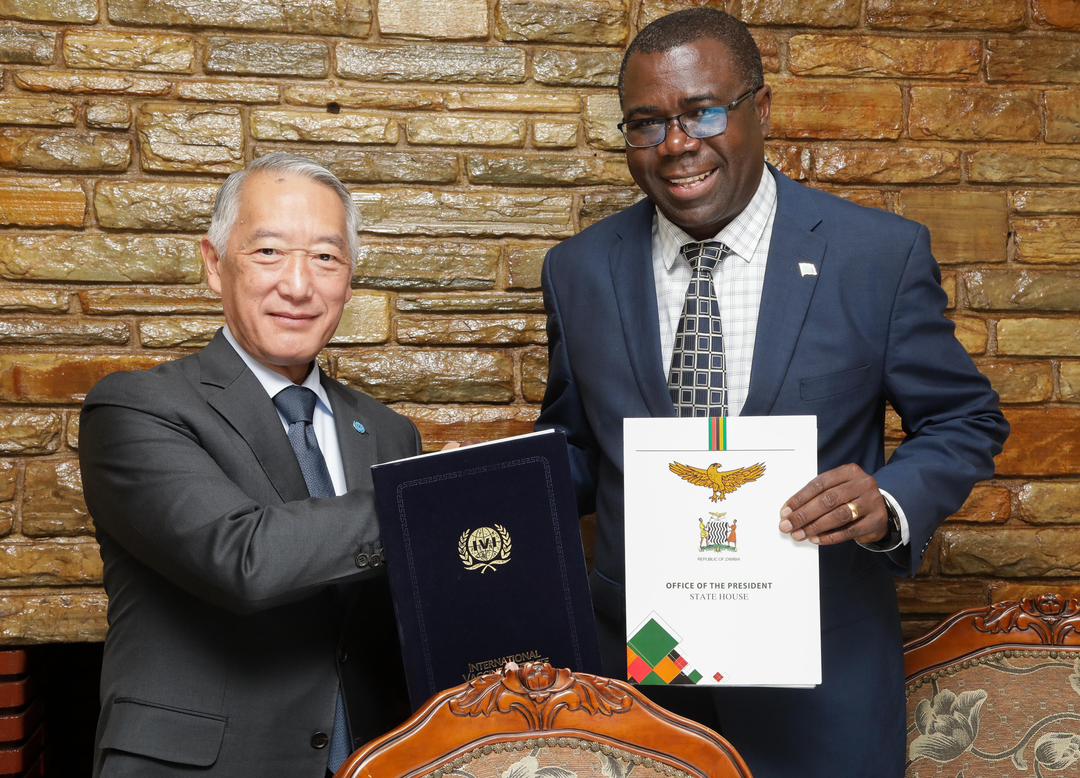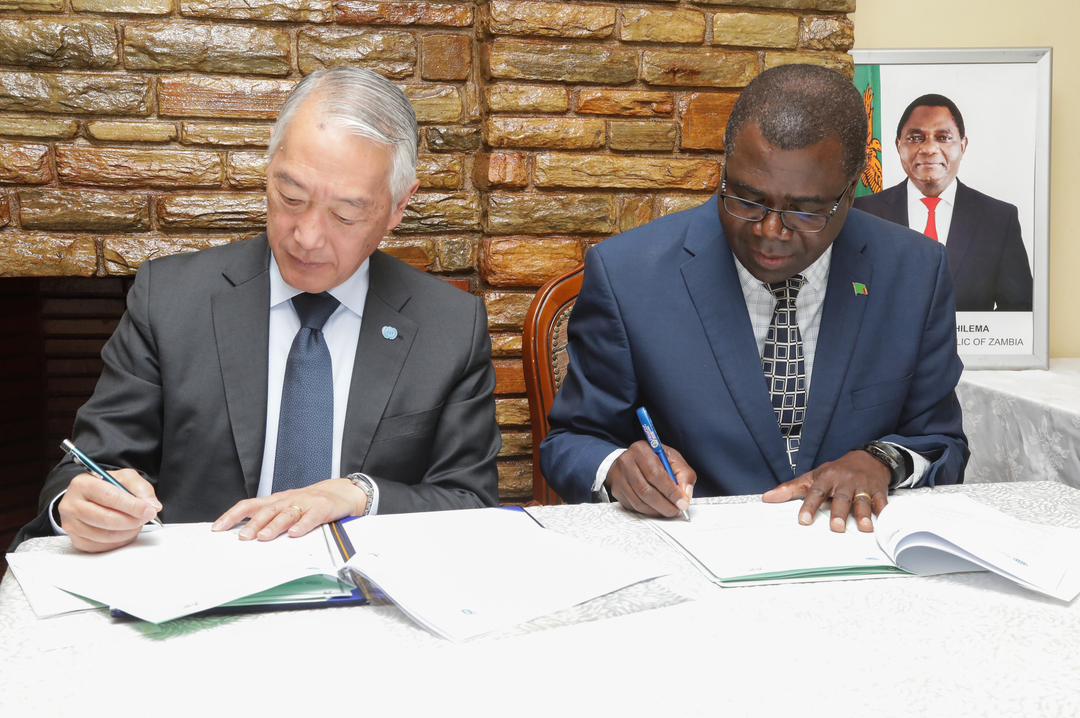ZNPHI, IVI Partner
 Collaboration focuses on technology transfer, workforce training, and regulatory readiness.
Collaboration focuses on technology transfer, workforce training, and regulatory readiness.By Francis Maingaila ♥️
Lusaka, Zambia24 - (29 August 2025)– Zambia has taken a major step toward strengthening its national health security and contributing to Africa’s vaccine independence by signing a landmark Memorandum of Understanding (MoU) with the International Vaccine Institute (IVI) to establish local vaccine manufacturing.
The agreement, signed at State House in Lusaka, was witnessed by government officials, global health partners, private sector representatives, and civil society stakeholders. It positions Zambia among the first African countries to pursue large-scale vaccine production, in line with the African Union’s 2040 vision for self-reliant health systems.
The MoU sets a 10-point collaboration framework between the Zambia National Public Health Institute (ZNPHI) and IVI, covering technology transfer, GMP-ready facility design, quality systems, regulatory support, workforce training, preclinical and clinical readiness, surveillance, project management, pilot manufacturing, and market access.

Presidential Advisor on Health and Director General of ZNPHI, Prof. Roma Chilengi, described the partnership as “a strategic leap forward,” emphasizing that it is not merely technical but foundational for producing vaccines tailored to Zambia and the continent.
“This is a first for Zambia, and it sets us apart as a pioneer in Africa’s health manufacturing landscape,” Prof. Chilengi said.
“Africa must stop relying on imported vaccines. Zambia is not only targeting its domestic market, we are positioning ourselves to serve the entire continent.”
Prof. Chilengi acknowledged the support of the European Union and the World Health Organization (WHO) in helping Zambia meet international regulatory benchmarks, and commended local pharmaceutical companies such as Yash Life Sciences for their readiness to begin production.
He confirmed that the cholera vaccine will be Zambia’s entry point, with plans to expand to other vaccines to ensure both commercial viability and long-term sustainability.
IVI Director General, Prof. Jerome Kim, expressed gratitude to the Zambian government for its bold decision and applauded President Hakainde Hichilema’s leadership.
“This collaboration will provide Zambia with hands-on experience in vaccine research and development. It is a gradual process, but IVI is fully committed to supporting Zambia every step of the way,” Prof.
Kim said, noting that the initiative would also build regional networks and knowledge transfer, reinforcing Africa’s capacity to respond to health crises independently.
WHO Zambia Country Representative, Dr. Clement Peter Lusaba, described the signing as a pivotal moment for Africa’s health agenda.
He emphasized the need for robust sensitization campaigns to prepare the market for locally produced vaccines and reaffirmed WHO’s continued support.
“Zambia will take the lead in local product manufacturing, and we hope other countries can join to improve the well-being of people across the region,” Dr. Lusaba said, highlighting the potential for Zambia to set a benchmark for vaccine self-reliance in Africa.
Stakeholders emphasized that the MoU represents more than a contract. Through innovation, capacity building, and sustainable vaccine supply, Zambia is positioning itself as a regional leader, advancing Africa’s goal of health independence while strengthening local research and production capacity.
The initiative is expected to reduce reliance on imports, improve the continent’s response to disease outbreaks, and enhance overall public health security.



Comments
Post a Comment